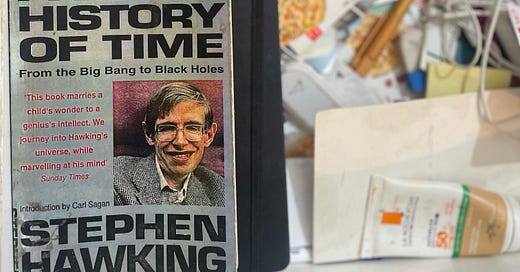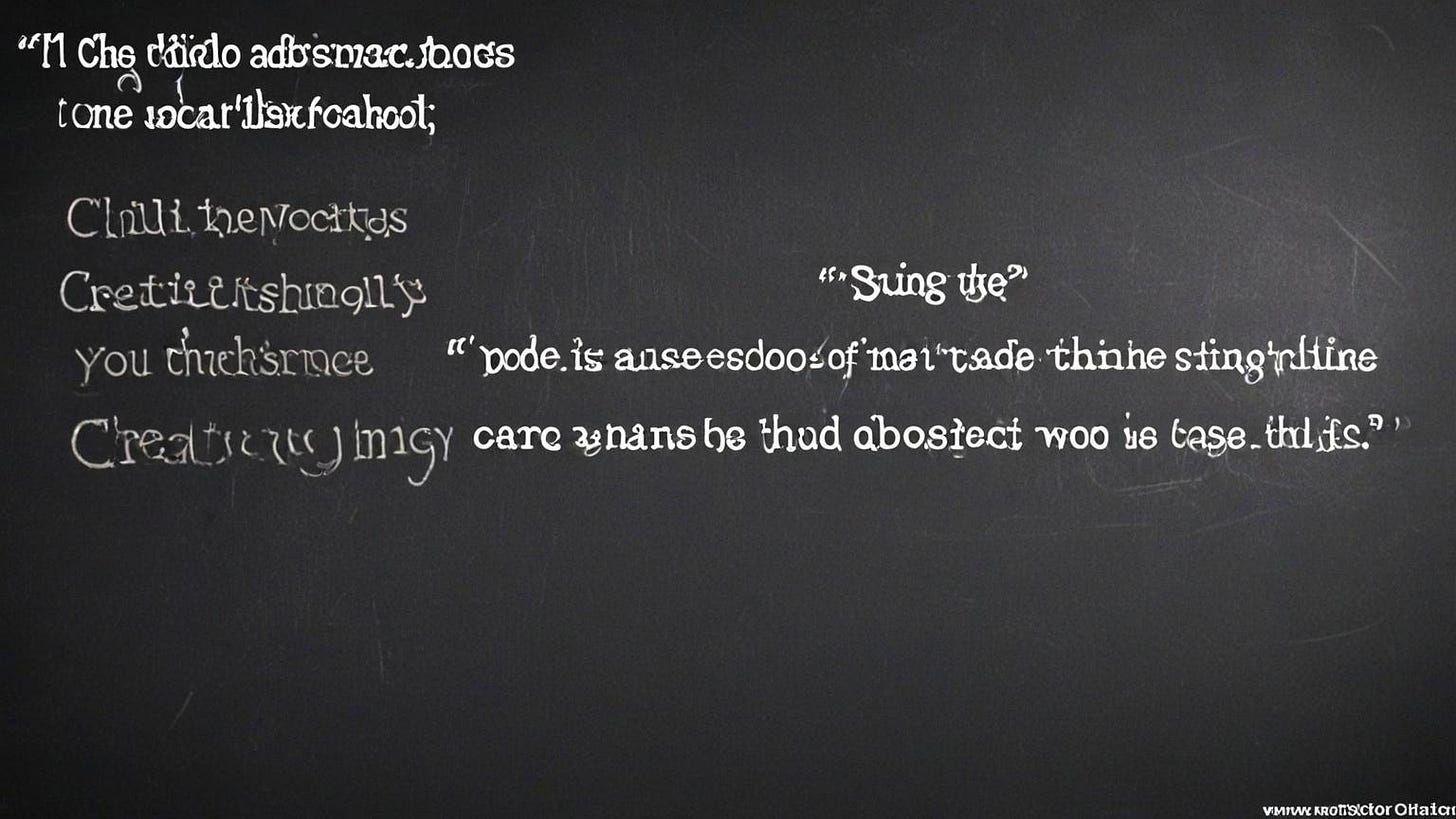Adaptability & ChildLike Curiosity
Story Time! How Stephen Hawkings’ Brief History of Time Transformed the way I think
Dear Beloved Reader,
I hope this article finds you very well.
Back in 2016, I wanted to ace A-levels Physics. I wanted a distinction. During this era, I one day saw an episode of Big Bang Theory on TV where the guest star was the physics legend, Stephen Hawking.
In classic millenial style, I googled him up and his wikipedia page where I learned that he has an oscar-winning biopic. I always knew for a fact that even oscar-nominated movies almost always are emotionally intensive. Hence, I saw “The Theory of Everything”. Eddie Redmayne and Felicity Jones did a phenomenal job. By the end of the movie, I was so in love with Hawking’s chain of thought, and that of theoratical physicists in general, I went to my nearest and cheapest bookstore and bought a copy of A Brief History of Time. (I still hold this copy near and dear to my heart).
The book was a journey inside the mind of perhaps the greatest scientist of our time. His mind truly was a marvel and a gift to mankind.
The one sentence I read from the book that I never forgot was:
“Any physical theory is always provisional, in the sense that it is only a hypothesis: you can never prove it. … you can disprove a theory by finding even a single observation that disagrees with the predictions of the theory.”
I sat there astounded and astonished.
Because.
The answer could be less cumbersome but bear with me.
Back in school, we had science and we had literature, among other classes. Our English literature teachers, who taught us Shakespeare, Thomas Hardy, George Elliot and more, would always tell us that in science theories are fixed. F=ma means F=ma whereas in literature the text was open to interpretation.
In science, for example, if you were given mass and acceleration, and were asked to calculate the force, then you must use no method other than multiplying mass with acceleration. There is no room for interpretation. Whereas in literature, we have the freedom to conjure any (conspiracy) theories, interpret the words of the author as we please (keeping in mind the context and as long as you don’t go too far off). My favourite one was when Solanio asks Antonio if he’s in love with Bassanio, to which Antonio replies, ‘Fie! Fie!’. The use of the exclamation mark suggested aggression and that aggression towards denying that love implied that Antonio was secretly gay for Bassanio.
Anyways. So this is what we thought up till high school. That scientific theories like Newton’s Laws, Binomial Theorems, Bohr’s atomic model were the absolute truths. The unchangeable laws of the universe.
Then I read Stephen Hawking non-chalantly state that all theories are provisional (I mean, I should’ve figured it out when I was watching the movie but God bless teen Husun). These theories can be rejected and modified any freaking time. I was just blown away by that.
As I dived deeper into the book, I discovered that Einstein revolutionized our understanding of physics by challenging Newton’s Laws. His theory of relativity effectively overturned the longstanding principles of classical mechanics. The once-absolute truth of F=ma was thus shown by Einstein to be fundamentally flawed.
I found it to be hilarious and an intellectually complex marvel at the same time.
I think this was the first time, or perhaps my earliest memory of going down a rabbit hole. I delved into the realms of classical and theoretical physics, exploring concepts such as how time is not absolute but rather dependent on the strength of gravity and how they accidentally discovered evidence suggesting the universe is expanding at an accelerating rate, a finding that fundamentally reshapes our understanding of cosmology.
Now.
Snapping back to reality.
I had an A-level Physics exam to give.
The textbooks where e=mc^2 was the written-in-stone truth.
Where there was no mention of how many theories had to be rejected before they stumbled upon this one.
One that was good enough to make reliable predictions of the universe.
The question that is bugging me after writing all this is - Does this approach of high schools (where the pedagogy style is more like stating and explaining the theories rather than walking students through the lifetime of a theory, and not revealing the creative and innovative aspect of science) stunt a child’s critical thinking or does it help build a strong base on which critical thinking can be built upon later on?
Would I have been the same person I am right now if I hadn’t seen that episode of Big Bang Theory on a random Thursday on TV? Probably not.
FYI, I got no distinction. AS-Level results were the worst grades I had ever received in my entire life. It broke my heart. Going down the physics rabbit hole did me no good. It actually did some harm infact. I reverted to borderline rote-learning like everyone else who had gotten an A or even an A*.
It wasn’t until many years later when I joined the professional workforce that I re-visited the areas of my brain where Hawking-led intellectual expansion had happened. There were these amazing people I met who encouraged deeply thought-provoking conversations and that too just for the sake of it. Finally, after all these years of Parrot-fashion learning, I could use what I had learned from going down the rabbit hole. I cannot tell you how much joy this brought me.
And that is all I have for you today Beloved Reader. In the part-II of this series, I shall talk more about how this book taught me the most unexpected lesson - Adaptability. I shall delve into the details of how an adaptive-mindset has been helping me navigate through the idiosyncrasies of an adult life.










Sigh. Stephen Hawking. "History" of Time? Talk about misusing words! The amazing thing is that people think he's smart. Heavier sigh.